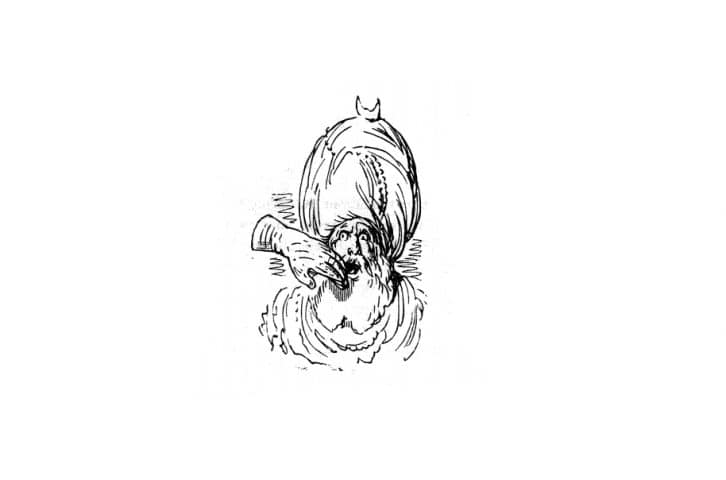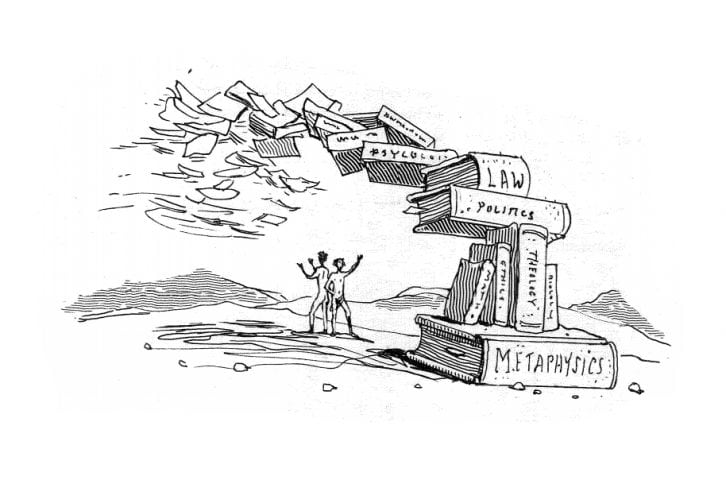The American Political Science Association turned 100 this year. A grateful nation didn't rush to throw it a party, so the APSA threw itself one at its annual meeting.The Association chose to celebrate its centenary in Philadelphia, thus indirectly associating itself with America's founders. This was a magnanimous gesture for the APSA, because from the beginning it was peevish about the founders' handiwork. Woodrow Wilson, one of the APSA's early presidents and the only professional political scientist (be thankful) ever elected President of the United States, called famously for an end to "blind worship" of the Constitution, as if no other kind of veneration for it were possible.
The new political science mandarins, many of whom had earned their degrees in Germany (which then had the most advanced university system in the world), looked forward to a "rational" democratic state that would give full reign to popular will, which was almost by definition rational. This new state would be organized, administered, and evaluated along the lines of the latter-day social sciences; its multiplying programs and agencies would mirror the reformist agendas in sociology, economics, public administration, and other fields. Thus the modern state and the modern university were born twins, and in the course of a few decades, Wilson and many lesser lights would step smartly from the one to the other. As a political movement, Progressivism would have been inconceivable apart from these developments.
It's worth keeping all this in mind when one considers the California recall. Progressivism is, of course, the father of direct democracy in California, though it was Governor Hiram Johnson's name on the birth certificate. There's no more vivid canvas of Progressive hopes and illusions than California.
Don't be lulled into thinking that the recall of Governor Gray Davis is merely an eruption of left-coast weirdness or Hollywood hype. The recall is a test of a theory, an experimental application of populist and Progressive notions concerning human nature and government. And it deserves to be the occasion for taking stock of this theory and what it's done to California.
Granted, the part played by Arnold Schwarzenegger is a little strange. He embodies so many Progressive predilections. In many ways he could be the APSA's dream candidate, the perfect commemoration of its 100th: educated in central Europe, married to a Kennedy (once removed, but still representative of mid-century liberalism at its best), and renowned for playing a robot sent to squash mankind and secure the world for the machines (even as humanistic political science is being terminated by quantitative methods and formal modeling).
At any rate, most Progressives were, and are, impatient with traditional American party politics, with its mixture of ideal and material incentives, its localism and enduring loyalties, above all its connection to the defense of the Constitution. Their hostility to "special interests" and party bosses is matched only by their enmity to separation of powers and the other constitutional devices that serve to constrain and focus government. Enough of this deadlock and gridlock, the Progressives say. Let the people rule directly, except when the unelected experts must rule on the people's behalf.
The contest between Schwarzenegger and Davis is an instructive example of this Progressive tension between leadership and administration, between direct democracy and bureaucracy, between parties based on a leader's connection to the people and parties that have almost faded into the civil service. Davis's predicament shows that if you promise (to borrow Michael Dukakis's trope) competence, not ideology, you'd better deliver competence at least. It illustrates, too, that direct democracy can and often does backfire on liberals, which is why liberals know it's good to keep in reserve a few federal judges to direct the democracy in the way it should go.
There are 135 candidates running for Davis's job, a fact that explains why we invented political parties in the first place. Whoever wins will face a political landscape tilted against good government. The budget requires a two-thirds vote of each house of the legislature, ensuring that the majority party can almost never be held to account for it. The state's executive is not unitary (e.g., the attorney general is elected independently of the governor), weakening the branch's energy and coherence. And the state's reliance on the initiative process both saps legislative seriousness and erodes the State Constitution's significance as fundamental law. Term limits don't help, either.
Not all of this is Progressivism's fault, but enough of it is to make the recall and its aftermath an occasion for rethinking and perhaps reforming. It's a shame that bad political science can't be recalled as easily as the California governor.


